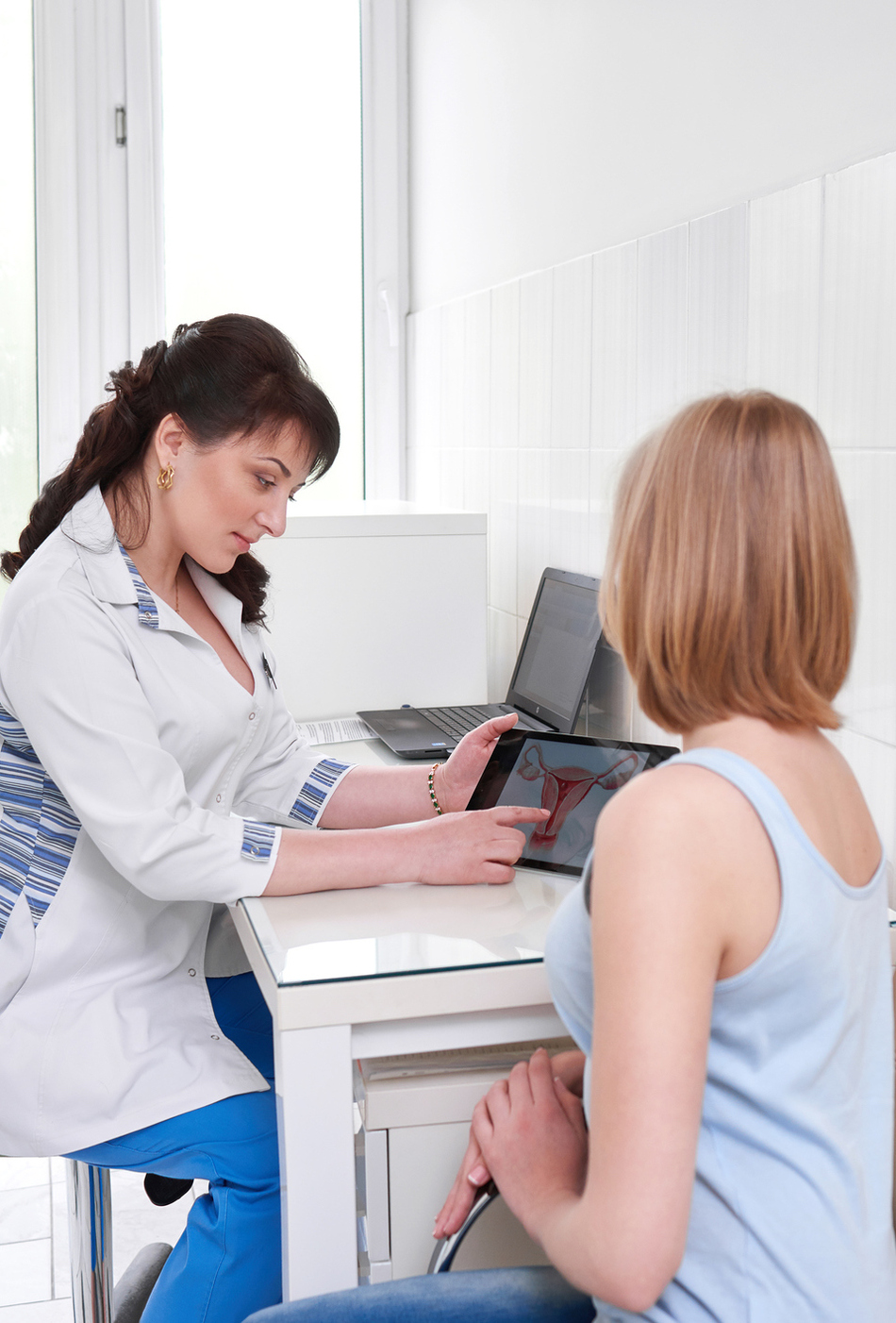
Dr. Jones: Your mom says you have to see her gynecologist. Oh, no. This is Dr. Kirtly Jones from Obstetrics & Gynecology at University of Utah Health. And don't freak out. This is The Scope.
Announcer: Covering all aspects of women's health, this is The Seven Domains of Women's Health with Dr. Kirtly Jones on The Scope.
When Should I Have My First Gynecological Exam?
Dr. Jones: Women seek help from a gynecologist at different times of their lives for different reasons, but the first visit can seem like it will be a personal and physical invasion. Firstly, when do you need to see a gynecologist? Not so long ago, women's first visit was a female checkup that the mom thought the daughter needed to have, or the infamous premarital exam, the exam before you get married to talk about birth control and sexual issues of married life. Infamous to me because I thought that many young women were coming to hear things their mother should have told them, but then again, maybe it was better coming from me anyway.
After Turning 21
If your periods are regular and not miserable and you aren't having sex that touches any kind of physical contact down there in your lady parts, you don't need to visit a gynecologist until you're 21 and when it's recommended women have their first Pap smear. However, the Pap smear is done to detect precancerous conditions of the cervix and perhaps test for HPV virus that's believed to cause cervical cancer. If you've had no genital sexual contact, you could argue that you don't need a Pap smear yet. However, the majority of women have had sexual genital contact and intercourse by the time they're 21, so they should have a visit to a health care provider, not necessarily a gynecologist, to test for chlamydia and gonorrhea and get birth control.
Before Becoming Sexually Active
It is a really good idea to have a GYN visit, not necessarily an exam, before you become sexually active so you can have information and birth control before you have sex. Of course, as we all know, this doesn't always happen.
Experiencing Pain or Abnormal Discharge
Backing up, if you're not 21 yet and you have unexpected pain in your lower belly or around the vulva area, vaginal discharge or wetness on your underwear that causes itching or burns or smells bad especially if you've had sex, or new bumps and lumps on your vaginal area, no menstrual periods by age 13 or 3 years after your breast development begins, vaginal bleeding that lasts more than 10 days, missed periods or menstrual cramps that are so bad that you miss school or you think you might be pregnant, you need to talk to a female health care provider.
How to Prepare for Your Appointment
If you have an appointment for a GYN exam, it's important to avoid putting anything in your vagina the night before your visit. No sex, creams, or fluid such as douching in the vagina. If you have a tampon in when you come for the visit, you will have the opportunity to go to the bathroom before your pelvic exam to remove it or your clinician will remove it if they do a pelvic exam. It's often very embarrassing for young women to think about having an exam when they're bleeding, but that's why gynecologists are used to it. So don't worry. This is what we're here for. This is what we really want to do. So if you have a problem, come and see us. We'll make you as comfortable as we can, and talk to us about what matters to you. And thanks for joining us on The Scope.
Announcer: Want The Scope delivered straight to your inbox? Enter your email address at thescoperadio.com and click "Sign Me Up" for updates of our latest episodes. The Scope Radio is a production of University of Utah Health Sciences.